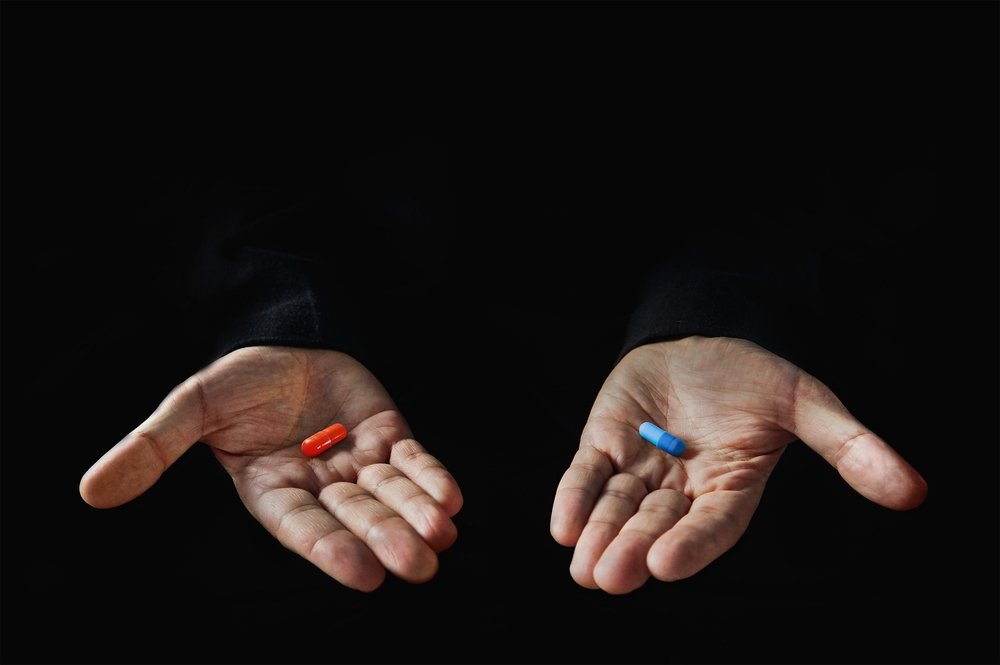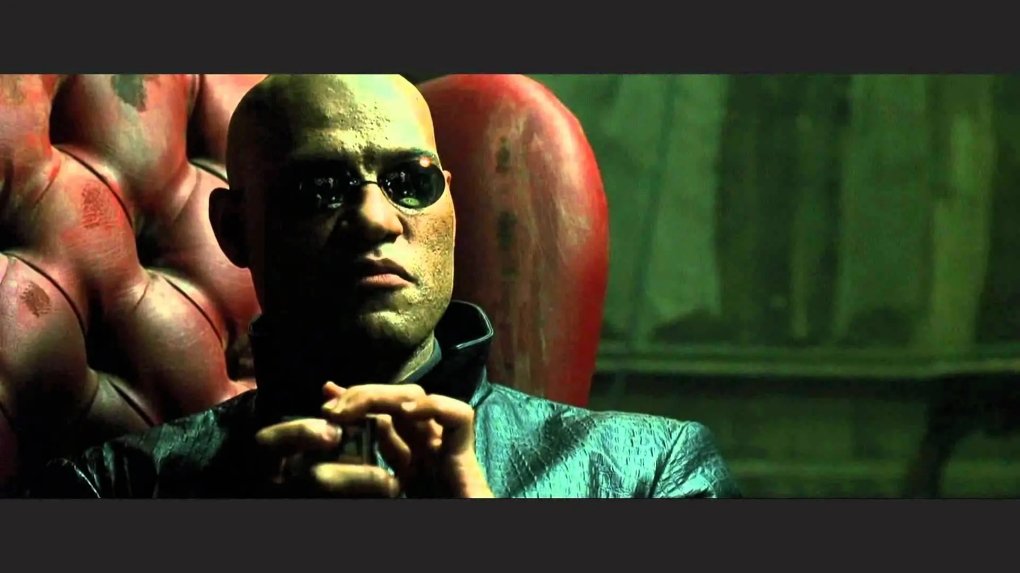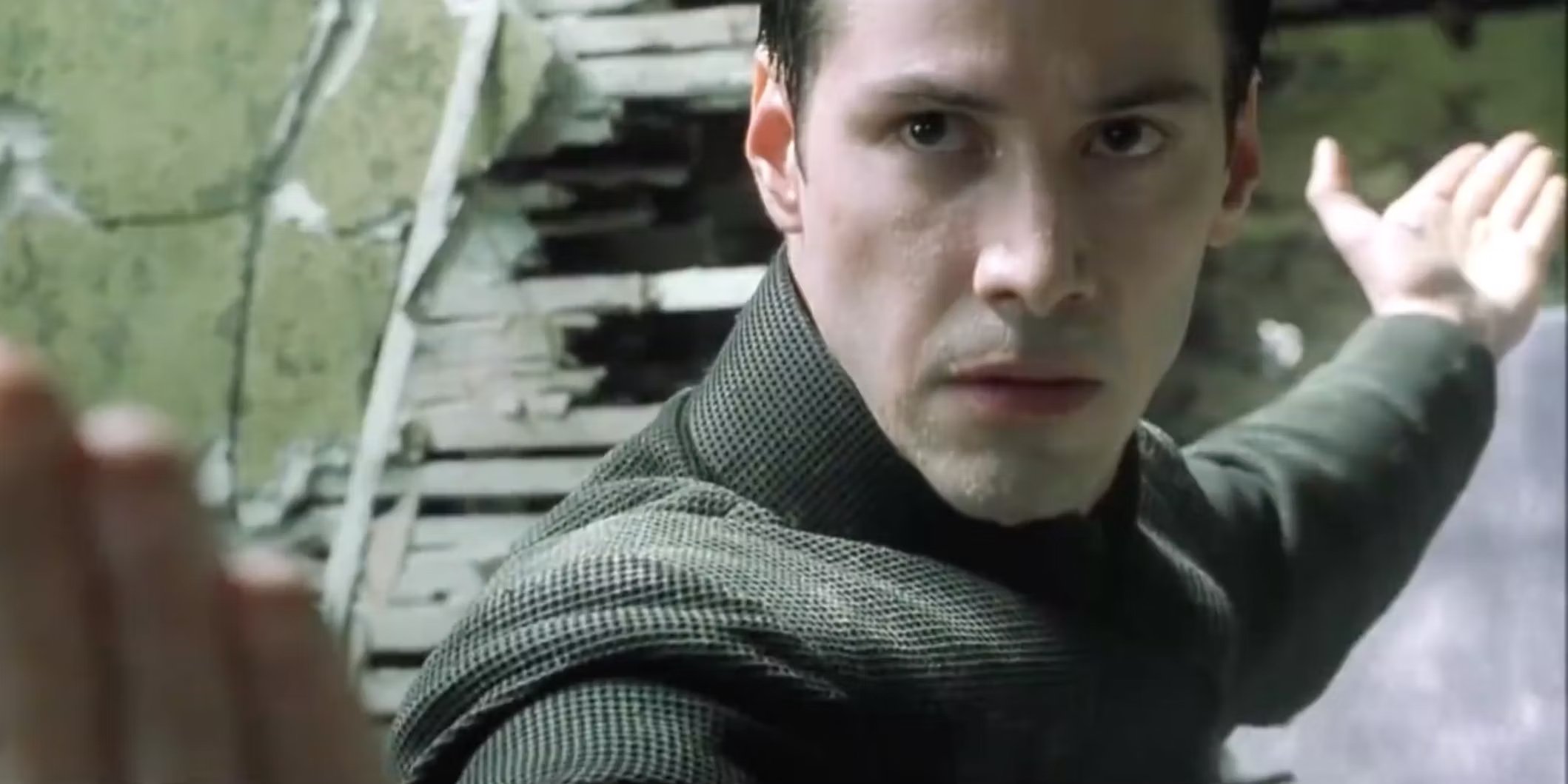25 years later, we are all trapped in "The Matrix". The 1999 sci-fi classic envisioned a world like the one we live in today, where human beings are cut off from each other due to technology. But he reminded us that resistance is possible.
It's a movie scene familiar to millions of people:
Morpheus sits across from Neo and informs him that reality is a lie. If Neo wants to learn the truth of human existence, Morpheus says, all he has to do is choose one of the two pills. “You take the blue pill — the story ends, you wake up in your bed and believe whatever you want to believe. You take the red pill... and I show you how deep the rabbit hole goes."

Signs for a Pessimistic Prediction (Matrix)
This scene is the turning point in "The Matrix," the sci-fi classic that was released 25 years ago this month.
Of course, Neo chooses the red pill and learns the terrible truth that its coming artificialof intelligence allowed machines to occupy Earth. He thinks it's 1999, but it's actually 2199, and all human beings are perpetually asleep and being exploited by artificial intelligence specialists as a power source. The world they think they are experiencing is actually a virtual reality known as “The Matrix”.
Morpheus, played by Laurence Fishburne, has dedicated himself to freeing individuals from the Matrix and driving them to a haven called Zion. He believes that Neo, played by Keanu Reeves, is "the One" destined to free humanity.

The Matrix was a huge hit in 1999 and spawned two sequels in 2003 and another in 2021. It also became a major cultural influence. The term "red pill" is now widely used on Dianetwork to describe someone who has become skeptical of the way political reality is usually portrayed.
The film's strength lies in the way it adapts one of the oldest allegories in the history of philosophy. In his art State of Plato, the Athenian philosopher Socrates describes prisoners who have spent their entire lives in a cave. A fire behind them casts the shadows of objects on a wall in front of them, and since shadows are all they've ever seen, they assume that what appears before their eyes is reality.
One of them breaks free, and makes his way to the surface of Earth, where he sees the sun and the real world. He eventually returns to the cave, seeking to convince his companions that reality is out there waiting to be discovered. Plato argues that the philosopher is like this escaped prisoner. It is his job to free humanity from illusion and teach us what is truly true.
The allegory of the cave is one of the indelible images in the history of Western thought, a metaphor for people's ability to free themselves from lying.
But Plato warns that the prisoners in the cave will resist release and that they will hate the philosopher who tries to teach them unknown truths.
In The Matrix, this attitude is represented by Cypher, played by Joe Pantoliano, who has been freed from the Matrix but longs to return. For Cypher, the real world is sad and very difficult. So he secretly asked the AI agents to put him back again, to allow him to re-enter the dream world. "I choose the Matrix!" he says defiantly, adding that if his digital experiences are more enjoyable than his current unplugged life, then "the Matrix might be more real than this world."
If we watch The Matrix again we will remember how primitive our technology was just 25 years ago. There are computers with massive screens, cell phones with keyboards, and a once ubiquitous feature of our society, landline "payphones."
In a strange way though, the film is more relevant today than it was in 1999. With the rise of the smartphone and social media, genuine human interaction has plummeted. Today, there are many people like Cypher, who would rather spend their time in the fantasy realms offered by technology than engage in a genuine relationship with other human beings.
In the film, one of the representatives of the artificial intelligence, the evil Agent Smith, played by Hugo Weaving, tells Morpheus that the false reality of the Matrix takes place in 1999 because that year was “the peak of your civilization. I say your culture, because as soon as we started thinking about you, it became our culture."

Indeed, after the premiere of The Matrix, humanity was connected to a matrix of its own. There is no doubt that our lives have become better than many opinions thanks to the internet and smartphones. But the epidemic of loneliness and depression that has swept society reveals that many of us are now isolated from each other in boxes of our own constructions.
For Plato the answer to the uncertainties of the cave is not to be found in esoteric rituals or magic spells but within us, thanks to our reason.
For today's digital cave dwellers, the path back to the light doesn't involve taking a pill, like in the Matrix, or being rescued by a philosopher. We ourselves have the power to resist the digital world, even as we remain connected to it. You can find hints of a disconnected “Zion” at Shabbat tables where electronic devices are banned, and in university seminars where laptops are banned so students can interact with each other.
Twenty-five years ago, The Matrix gave us a modern twist on Plato's cave. Today once again we ask what it takes to find our way out of the lonely darkness?




The Matrix (1999)
It spawned three sequels
Matrix Reloaded
Matrix Revolutions
and
The Matrix Resurrections (2021)